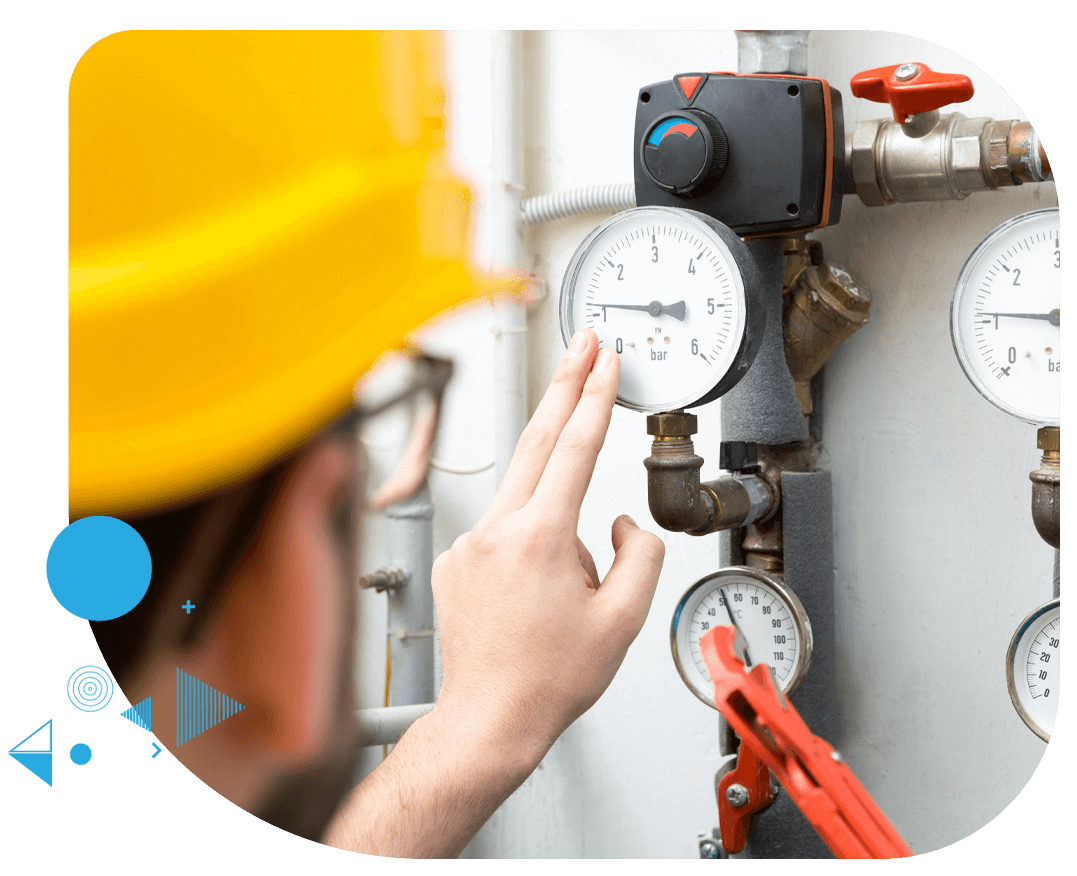Is your business expanding? Or maybe you’re moving to new premises or renovating your current one? Whatever your situation, you’ll need to think about new business electricity meter installation.

A business energy meter will monitor the amount of energy your company is using and this makes it a vital part of your company’s infrastructure.
Once you’ve researched, compared various energy deals and chosen the right one for your business, your energy meter will accurately measure how much energy your business is using. This ensures you don’t over or underpay for your gas and electricity.
If you don’t have regular meter readings, your business electricity and gas supplier will base your bills on rough estimates, meaning you could end up paying far too much.
If you need to increase your energy usage or install new business energy meters and have no idea where to start, you’re in the right place. Having a new meter installed can seem complicated at first but you’ll find all the information you need about gas and electricity meter installations right here.
From how to arrange a fitting to the different types of business energy meters, read along if you’d like to know more about having your new meter installed.
How To Arrange An Installation
Having your new meter fitted is easier than you think. Simply follow these steps to get your installation appointment booked and start getting accurate energy usage readings:

- Find your business energy supply numbers
Your property will have unique numbers for your gas and electricity supply. You’ll find your MPAN or Meter Point Administration Number on your most recent electricity bill. The MPRN or Meter Point Reference Number will be on your gas bill. - Find out which type of meter your property needs
Not all meters are the same, so you’ll need to speak with your business gas and electricity supplier to decide which meter is best for you. To help with that, we’ve listed all the types of business energy meters available below so be sure to check them out! - Negotiate the cost of your new business energy meter
Although smart meter installations are usually free, some business suppliers may charge fees for having other types of meters installed, particularly if a lot of energy is used. But, the installation cost is usually negotiable, so don’t go with your supplier’s initial quote. Be sure to haggle over the cost of installing the meter. - Book the installation appointment
Once you’ve decided on the right meter type and the installation cost, your energy supplier will arrange the installation day. Once it’s been fitted, the billing will start on the terms you’ve agreed with your provider.
Different Types Of Business Electricity Meters

There are a few different types of gas and electricity meters to choose from. Each one is designed to be able to meet the energy demands of different companies, from small to medium businesses to large operations.
Take a look at the different types below:

Dial meters
Electricity dial meters have 5 or more dials and they can each turn to point to a number between 0 and 9. Each dial on the meter will turn in an opposite direction to the ones on the left and the right of it.
Some business energy dial meters have a clockwise dial and others start with anti-clockwise dials, so be sure to check yours before you take a reading. To take your dial meter readings:
- Read the first 5 dials left to right, but ignore the red dials or any that are marked 1/10.
- If the pointer is in between two numbers, note down the lowest number. If it’s between 9 and 0, note down 9.
- If the pointer is pointing to a number directly, jot down that number and put a line under it.
If you’ve underlined any numbers, check the next dial on the right. If that dial’s pointer is between 9 and 0, reduce the underlined number by one. For instance, if you initially jotted down the number 5, reduce it to 4.
Digital meters
A digital meter can automatically record energy usage and then electronically send that information to your energy provider at regular intervals.
Digital meters are revolutionising electricity meters, and many business suppliers are offering them because of their convenience and accuracy. Digital meters make it much easier to monitor your energy usage so you can see when it peaks.
Digital meters provide you with more power due to their ability to collect accurate information. As soon as your digital meter is installed, you’ll be able to enjoy its many benefits including:
Speed and accuracy
There’ll be no more waiting for months on end to receive your electricity bill with your total usage. With a digital meter, you’ll know your exact electricity usage every hour of the day and it’ll only take a few days for you to receive this information.
Convenience
With a digital meter, you’ll no longer have to call a technician out to check how much electricity you’re using. You also won’t need to make a trip to your meter room to write down numbers to send to your business energy supplier.
Digital meters will send the readings off automatically, constantly and reliably. You won’t receive any more estimated bills, your energy consumption will be extremely accurate and you’ll be able to check your usage from your computer or phone whenever you wish.
Also, if you want to change your power rating you won’t need to have a technician visit you because it can be done remotely.
Security
Digital meters are also tamper-proof. The operation mode is constantly monitored remotely and any issues with your electricity supply will be quickly resolved.
Variable-rate meters
Variable-rate meters, also known as Economy 7 meters, are designed to save you money on energy use during overnight hours. Variable-rate meters monitor daytime and nighttime electricity use separately so you can be offered a different kWh rate through an Economy 7 tariff.
This is similar to off-peak and peak time phone calls and it can be a great way of saving money on your energy bills. So how does it work? Economy 7 tariffs allow you to have cheaper electricity for 7 hours every night.
These tariffs use a different meter that can monitor your electricity use during the day and night separately. You’ll then be charged the different rates for the electricity that your premises use during the day and night.
Your day rate will likely be more expensive than normal day rates, and this may not suit everyone’s business. But, it could be a good option for you if you typically use more energy during Economy 7 times.
Prepayment meters
Lots of energy suppliers offer prepayment electricity and gas meters and they’re an easy and intuitive way of paying for your energy use. If you choose a prepayment meter for your property, it means that you’ll pay for your electricity or gas before it’s used.
You do this by buying credit, normally with a smart card and adding it to your meter. As the energy is used, the meter credit will be used up.
Compared to direct debits or quarterly bills, prepayment meters are usually more frequent and smaller. This can be helpful if you’re budgeting as you can top your meter up every week or month whichever is more convenient for you. It also means you won’t have to worry about any big or unexpected bills.
Smart meters
A smart meter may be a good option for your business as it can help you to stay on top of your energy use and needs.
This type of meter works similarly to a half-hourly meter in that they report automated readings to your provider, saving you the inconvenience of doing it yourself. This also helps you to get more accurate bills so you don’t overpay.
Most of the time you’ll be able to switch to a smart meter for free, so it’s worth contacting your energy provider and asking for more information.
Single vs Three Phase Supply
Single and three-phase supply means the voltage of the electric supply that you receive. A three-phase supply would give you a higher amount of voltage than a single-phase supply. When you search for energy providers, you may have to choose between the two. But which one is best for your business?

- Single-phase
A single-phase electric supply is ideal if your business only needs a small power supply. For example, if your electricity use is for basic things such as heating or lighting. - Three-phase
A three-phase supply will give you more electricity and it’s ideal for businesses that use a lot of power, such as heavy machinery use.
If you’re still not sure which meter is best for your business, we recommend you evaluate your business operations to decide how much electricity you’re using.
How Long Does Installation Take?
It typically takes 5-14 days to have your new business meter installed. If you’re having an extra meter fitted, the installation can take up to 12 weeks as additional work may be needed at your business premises.

This is why you should try and arrange the fitting of a new business meter as early as possible, ideally at least a month in advance. For safe installation, always use fully qualified and accredited installers.
You should also keep in mind that you or an employee will have to be present when the technician visits to fit the new meter, or they may not be able to carry out the installation.
How Much Does Electric Meter Installation Cost?
On average, the cost of having a business energy meter fitted ranges from £200 to £800. But, this total cost depends on various factors such as:

- The location of the new meter on your premises.
- The type of meter you’ve chosen.
- The standard costs your provider charges for the fitting and the energy meter itself.
Frequently Asked Questions
Whether you’ve had new electricity connections and need a new energy meter installed or you’re simply upgrading your current one, you’re probably wondering how much it will cost.
The cost of having your business meter fitted completely depends on a few things. The cost will be determined by which type of meter you choose, as some will be more expensive than others. It’s a good idea to discuss it with your energy provider to see how much it will be.
You can usually expect your new business energy meter to be fitted within 2 weeks, although quite often it will be quicker than that.
But, if your business works across multiple premises or your property has more than one meter it can take up to 3 months, so it’s strongly advised that you organise the installation as soon as possible to avoid delays.


